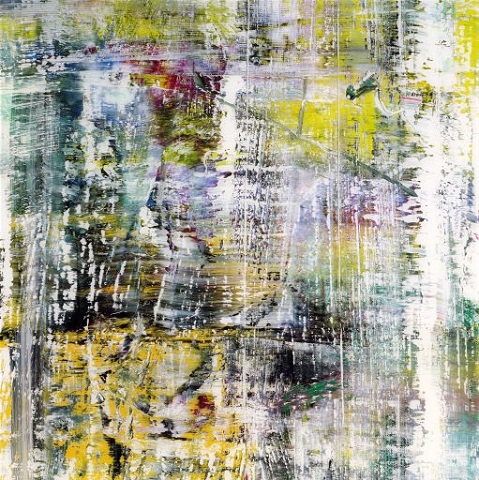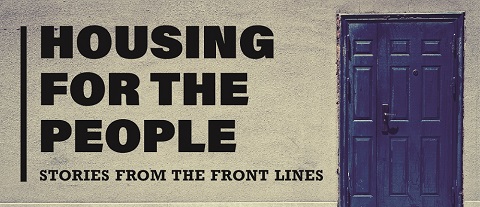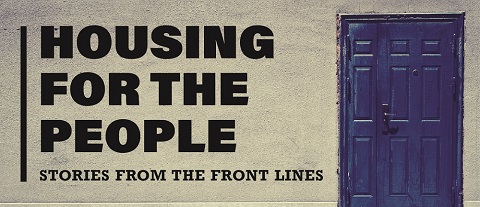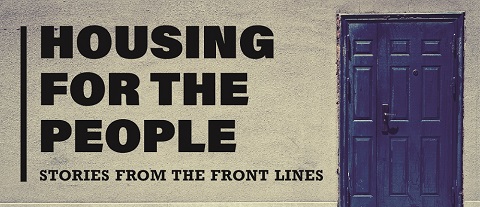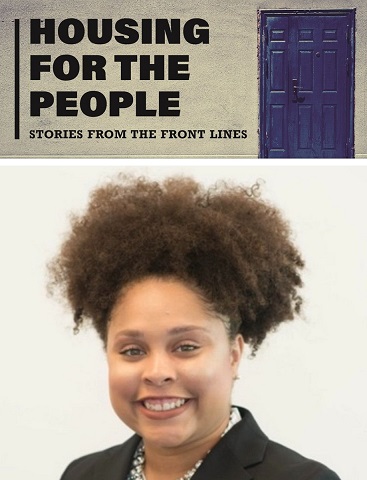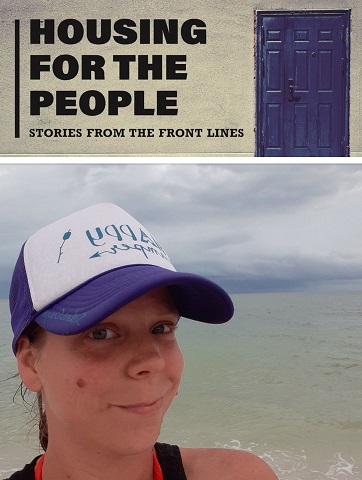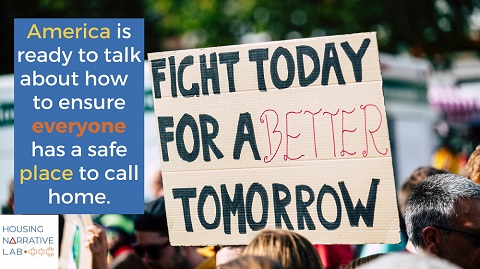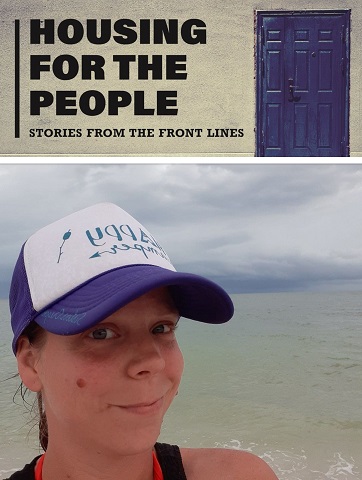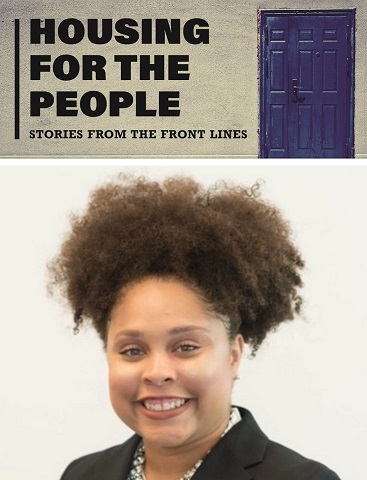By Sebastian Sellhorst, bodo
We meet Eva in the shadow of VfL Bochum’s stadium, the Ruhrstadion, and is a focal point for homeless people here. She has been homeless since she lost her flat a year ago. Up to 40 homeless men and women can spend the night at the deaconry’s overnight accommodation facility. “I have been here for just a few weeks. Before, I was able to stay with friends or acquaintances,” she tells us. She ended up on the street when she moved out of her old apartment and the lease on her new one did not materialise. “A really stupid story at the time,” she remembers.
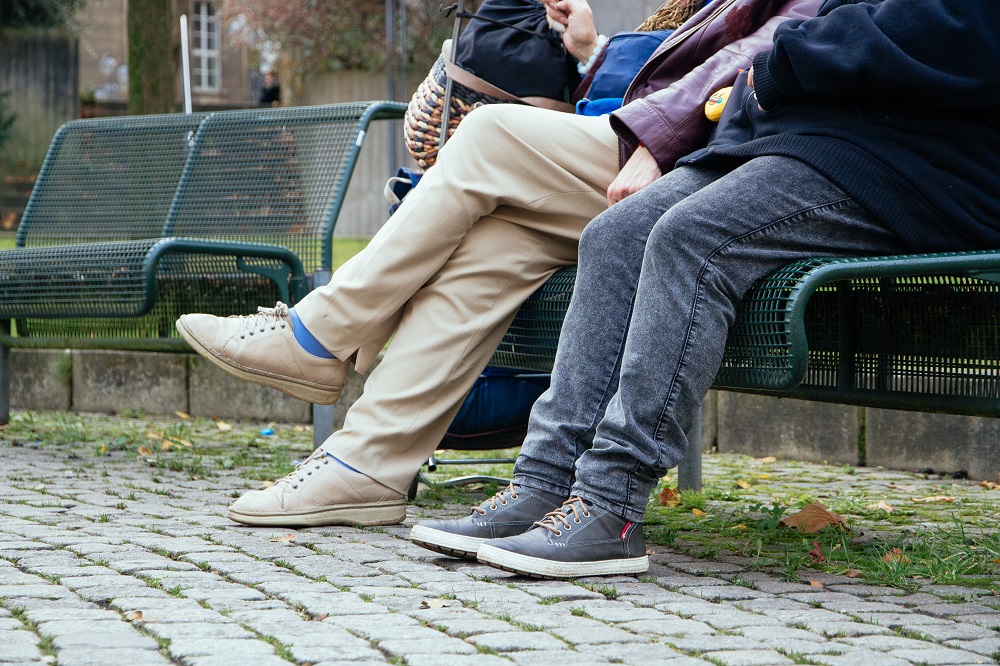
Eva: “Sundays are the worst.”
Eva’s day begins at eight o’clock. That’s when the inhabitants of the Fliedner Haus (a local shelter) have to leave the building. While we take a walk around the stadium, Eva tells us about her daily routine. “When we have to clear out in the morning, most people head to the city to start with,” Eva says. “Nearly everyone starts by going to the Mission at the railway station for something to eat. The next stop for me is always the counselling centre for homeless women at the deaconry and then the soup kitchen. I was all alone on my first few days as a homeless person. That was hell. You just feel so incredibly alone.”
“Nowadays we are a small group of people who always travel together,” Eva continues. “We mostly meet up around 2pm and spend our time here at the stadium. There is a nearby petrol station where we can use the toilet. A bit further on, there are supermarkets where we can get some supplies and we have our patch here at the stadium. When it’s raining, we sit in the underpass that joins the stadium and the fan shop. In the nice weather, we can also sit behind the stadium at the training ground and watch VfL practice. Sundays are the worst days. Everything is closed, and we just do not know where to go.”
At the moment, Eva is counting the days until she can again move into her own flat. “It will all be over soon, and I will have four walls to call my own again,” she says hopefully. “I will be able to sleep in again.”
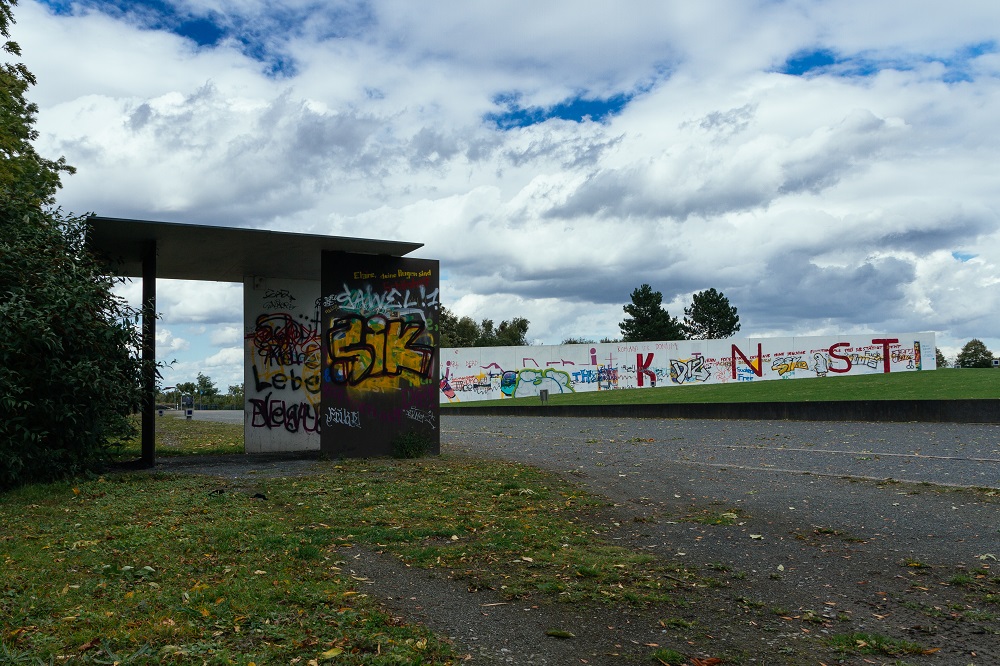
Carmen: “Dogs are banned in overnight accommodation.”
Carmen also knows that there is a massive gulf between renting a flat and sleeping under the stars in a sleeping bag. When we meet up at her apartment to go for a walk with her and her dog in West Park, she tells us about her time without anywhere to live. “When I did not have my own flat for a year and a half, I was lucky that I did not end up on the streets straight away. I had a friend who was a lorry driver. When he was away for work, I could use his flat as a place to sleep.” The Fliedner Haus would not have been an option for Carmen. “If you travel with a dog like I do, overnight accommodation and shelters are off limits to you,” she explains. “Of course, this causes huge problems – for a lot of people on the streets their animals are like family.”
For a while she slept in an allotment. “A friend of mine had a small shed where I spent some nights and it was OK. It is actually illegal to sleep in most allotments,” Carmen says. “But my dog had been trained as a guard dog and because there had been a lot of break-ins in the area, the people there were OK for us to spend the nights there.”
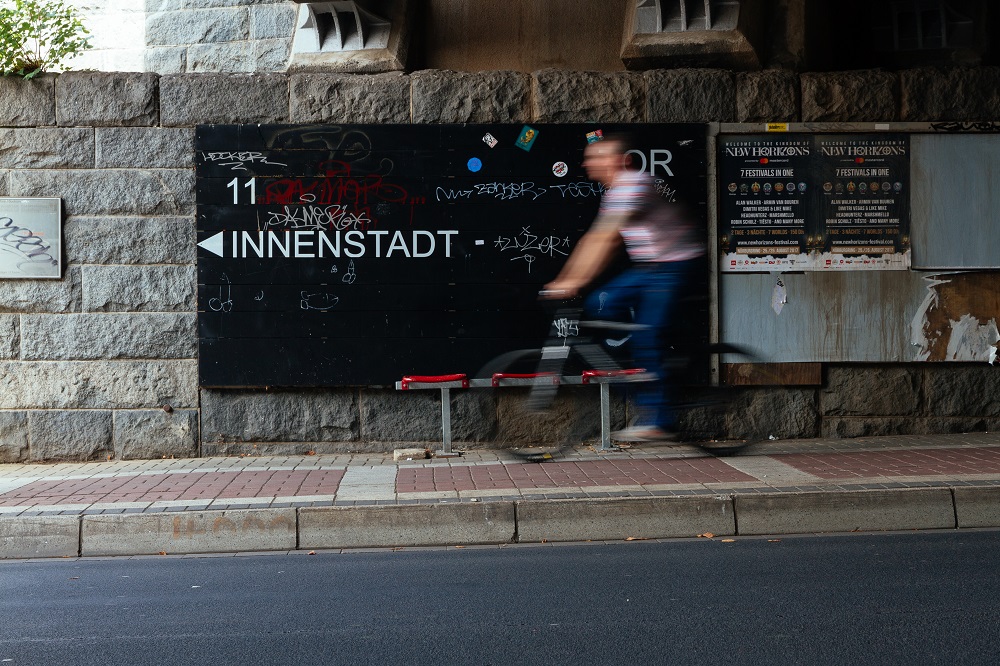
Doris: “We tried to stay invisible.”
At the fountain between the city library and the town hall we meet Doris, who has invited us to the nearby soup kitchen, which is located right next to the Bodo meeting point on Stühmeyerstraße. Four times a week, visitors can get a hot meal there for the cost of 50 cents. “At first, I thought that you could only eat there if you were homeless. But everyone gets something to eat here. And mostly it’s delicious too,” she tells us, as we look for a free table inside the well-filled establishment. The network of services for people living on the streets is certainly in evidence. You just have to know where to go, then find the courage to actually go in, Doris tells us while we are eating. “When you find yourself in a crisis, you are unaware of most of the facilities. You try to remain invisible, because you might be ashamed of your own situation. It’s a lot to overcome to go into an aid organisation.”
After lunch, we all go back to the fountain. “This is where most people meet, who are on the streets for one reason or another. Probably because it’s a good location,” Doris surmises. The benches and other seating behind the library are one of the main gathering places for homeless people in Bochum, which are located between the deaconry’s counselling centres for men and women, the crisis help centre, the soup kitchen and the medical help facilities for the homeless. Alongside the classical aid organisation, the library itself is also a focal point for many people with nowhere to go. “For ten euros, you can get an annual membership there. It’s warm, the toilet is free and you have access to the internet.”
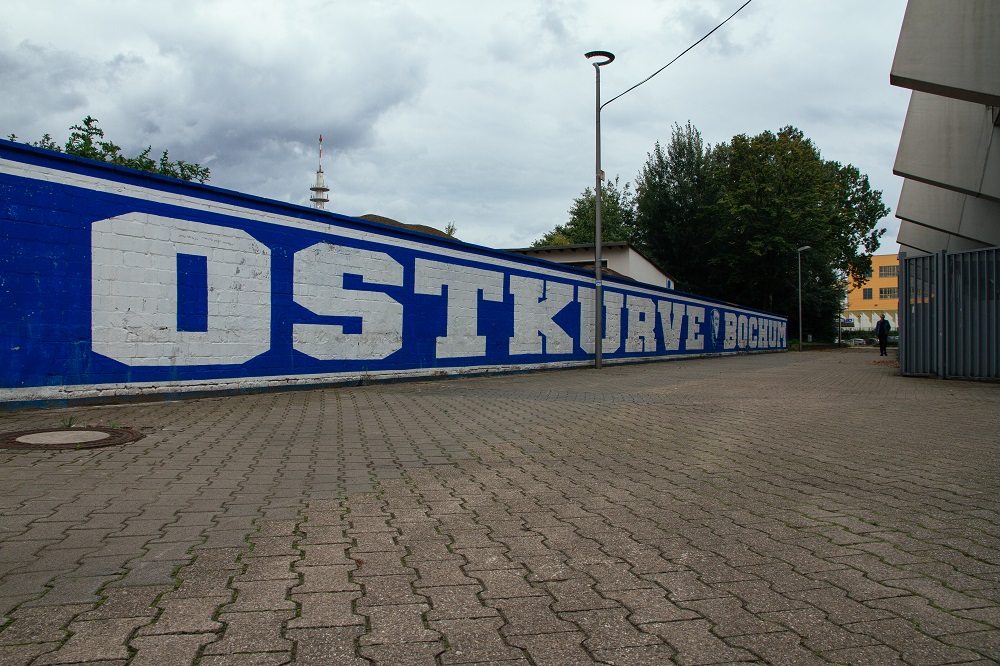
Ingrid: “Businesses watch closely who comes in.”
Ingrid also spent many nights in the Fliedner Haus. She spent a few nights in a hotel when she first came to Bochum from Hamburg. When she ran out of money, she was told to contact the women’s advice centre. From there, she also ended up in the Fliedner Haus. She spent most of her days in the Stadtpark. “Of course, you move about the city a lot when you don’t have your own place. But without a penny to your name, you can quickly get frustrated passing all the cafes and shops, knowing fully that you can’t afford such things,” she recalls of her time on the streets, as we head towards her favourite bench. “Here in the Stadtpark, you are left alone. When all the students come here on summer afternoons, nobody notices you.”
If she wasn’t in the park, she would be doing various errands for friends and acquaintances in the city centre who had been barred from various shops. “Many businesses pay very close attention to who comes in,” she explains. It is often enough that you look as though you spent the night sleeping rough. Even someone who has too many bags will be turned away, Ingrid says. “It has always been important to me that people do not notice that I am homeless and that I am part of the crowd. I always try to remain as inconspicuous as possible to avoid being a victim of aggression or violence.”
Translated from German by Edward Alaszewski




